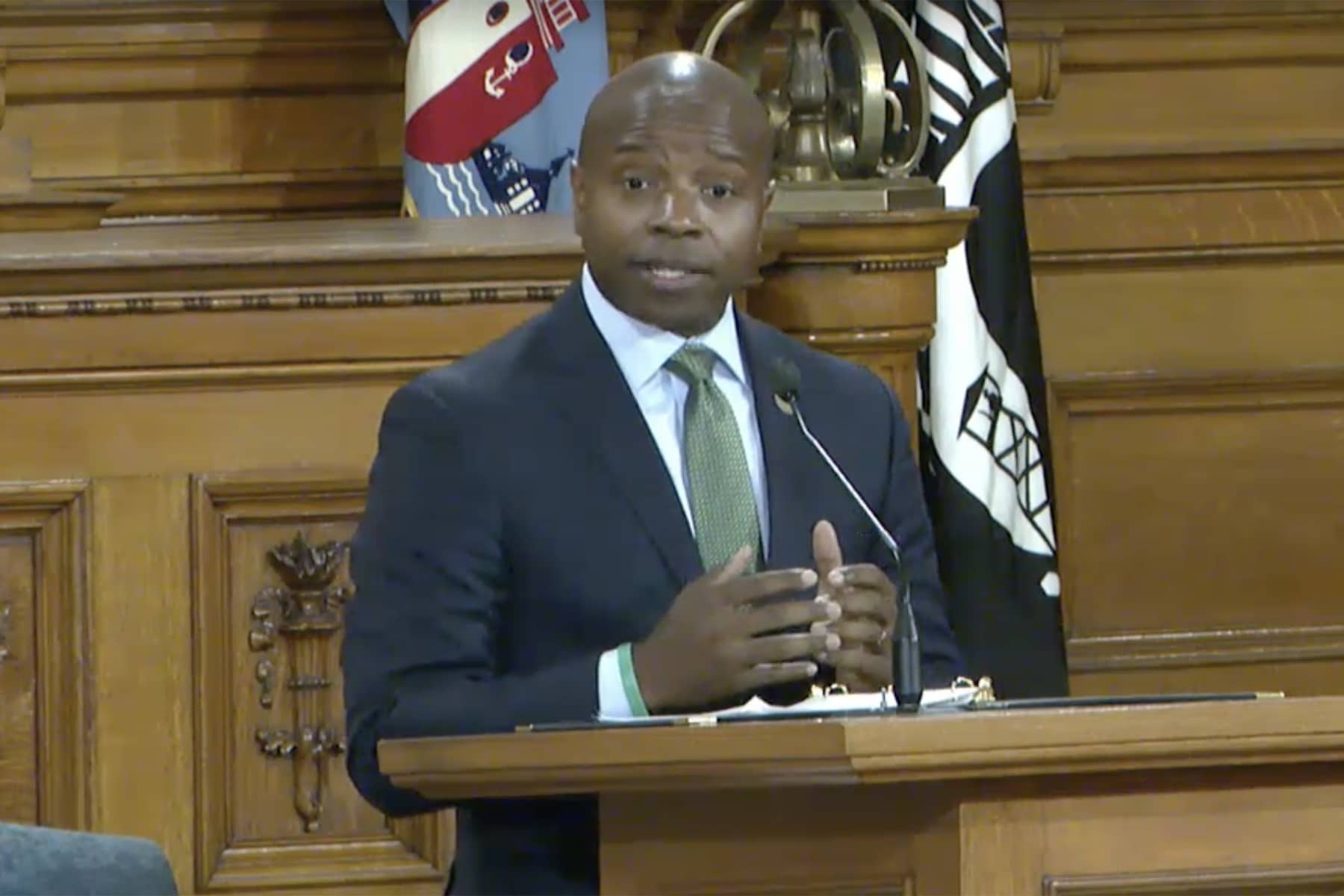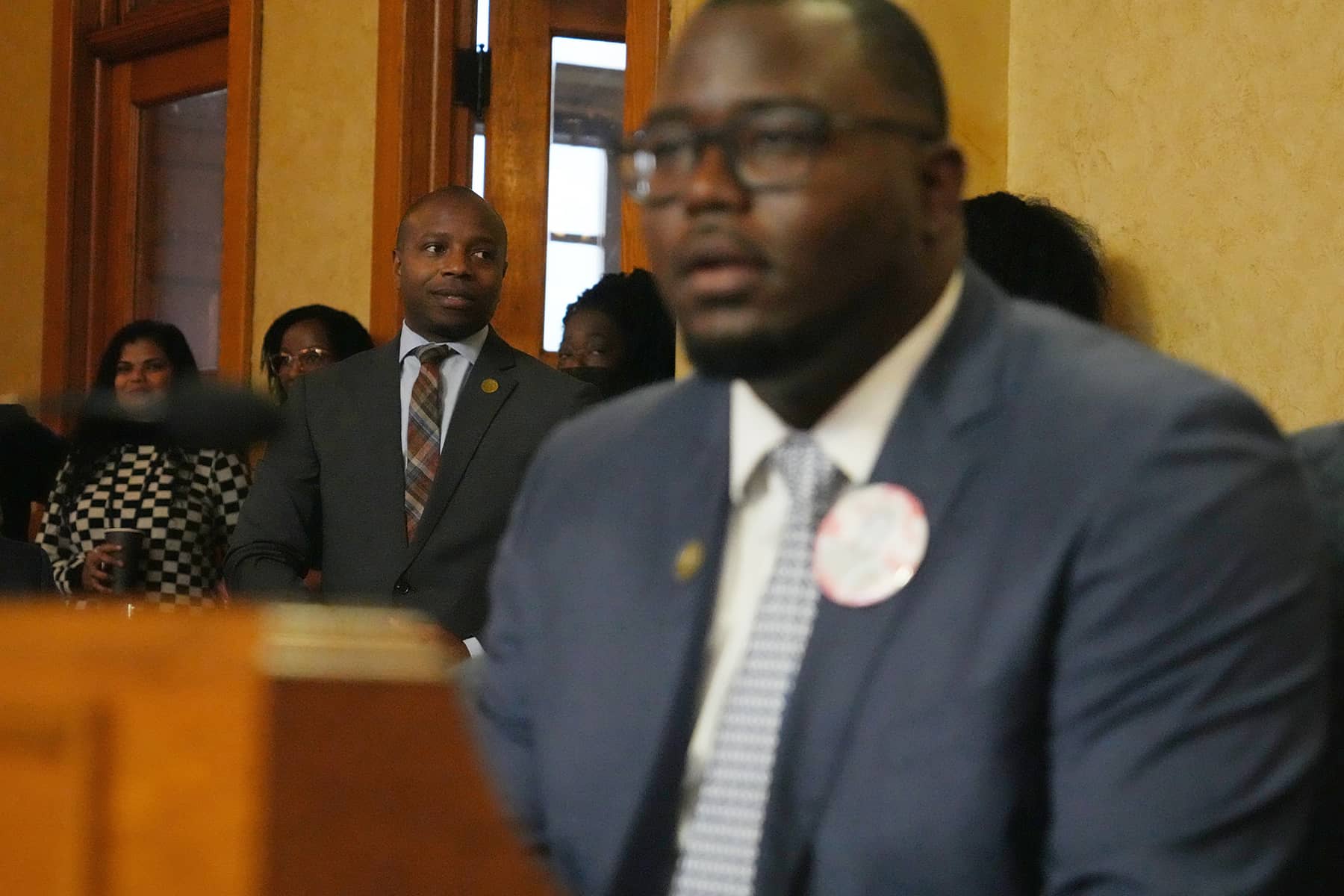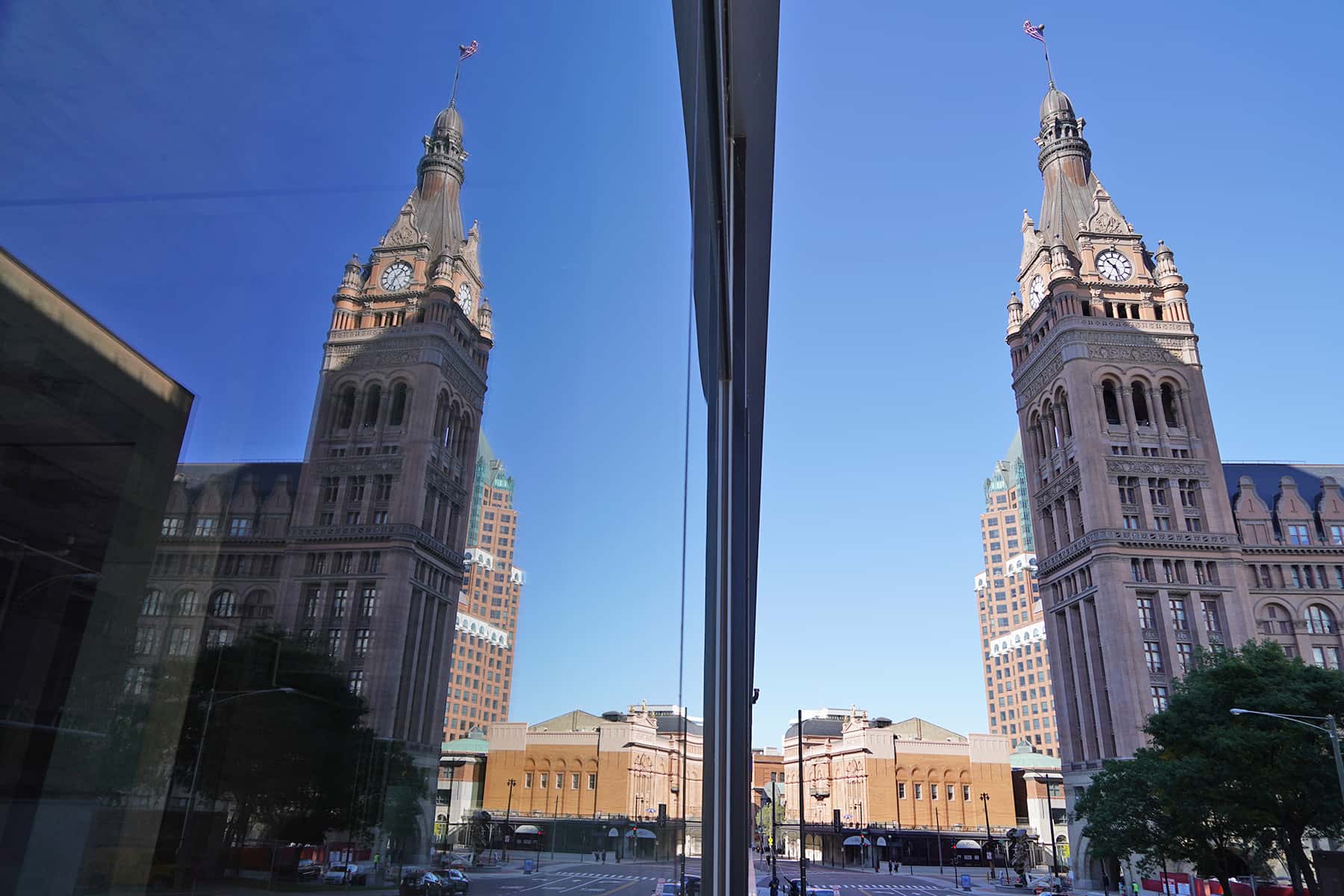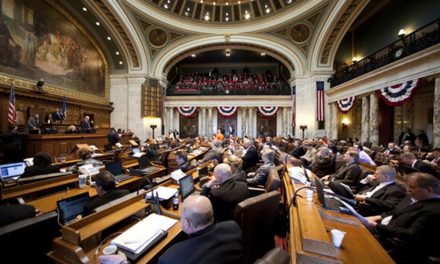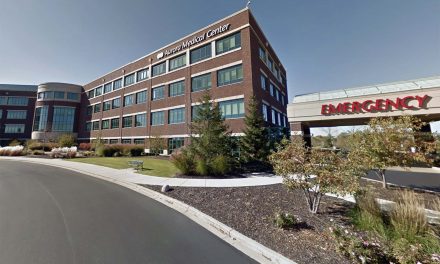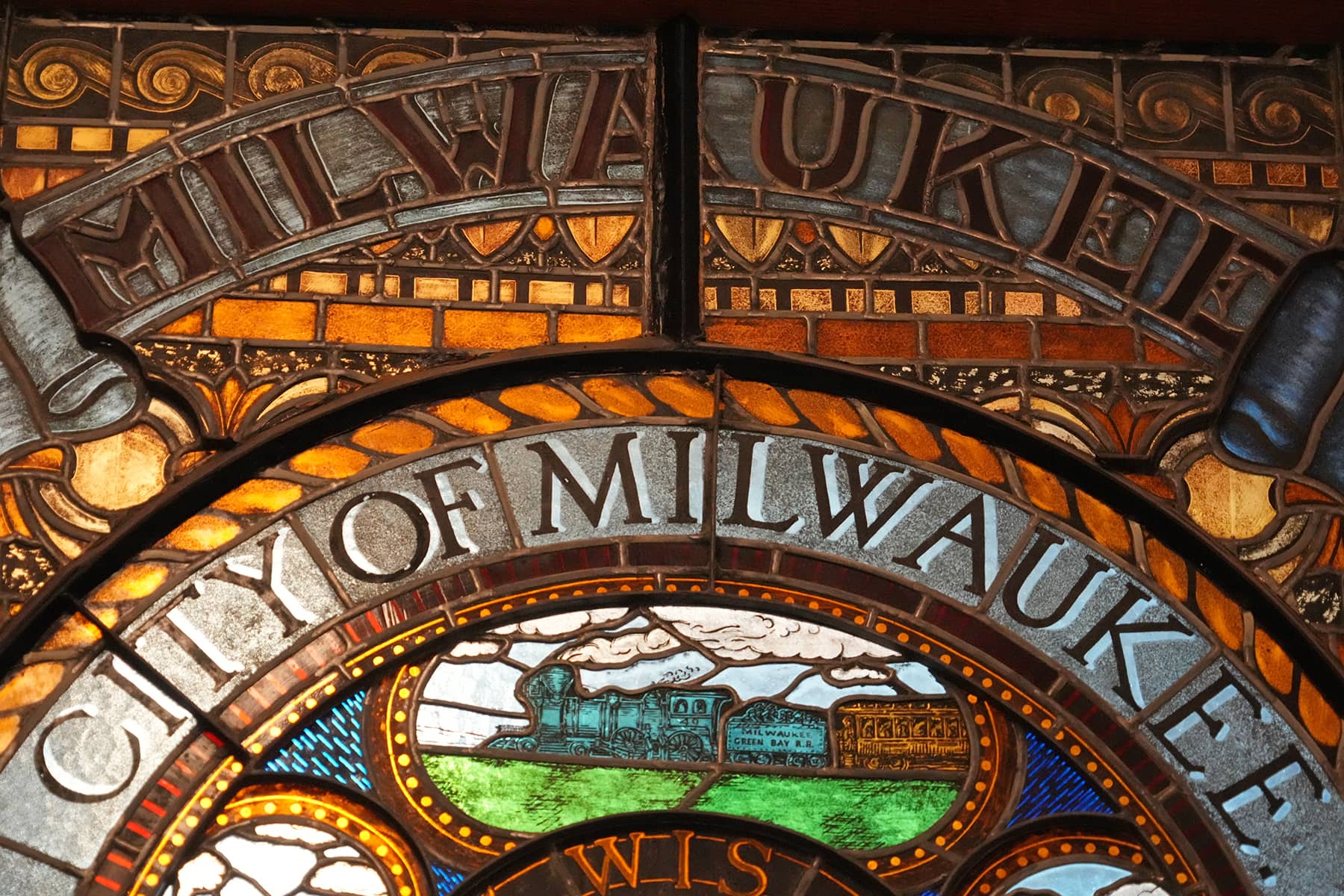
Milwaukee Mayor Cavalier Johnson shared his 2024 city budget with the Milwaukee Common Council on September 19. The spending plan included provisions to increase public safety, infrastructure improvements, and neighborhood quality-of-life investments.
Presentation of the 2024 Milwaukee City Budget to the Common Council on September 19, 2023
Fulfilling my responsibility as Mayor of the City of Milwaukee, I present to you my 2024 municipal budget.
The Proposed Plan and Budget Summary calls 2024 a pivot year. The previous trend of service cuts and draws on our reserves is behind us. Our new direction takes us on a path toward fiscal stability.
That’s not to say we are now flush with cash. The revenue derived from the city’s coming sales tax is dedicated to paying for new police officers, new firefighters, and closing out the city’s pension system.
We also need to remedy the undesirable, past budget choices forced on us as we cobbled together financial solutions. That includes renewed focus on our deferred capital investments, our employee compensation shortfalls, and our diminished reserves.
But before we get into the details of my 2024 plan, I want to talk about the budget I am not presenting. I am not closing branches library. I am not imposing furlough days or hiring freezes on our employees. I am not closing firehouses. I am not cutting police sworn strength. I am not offering a budget that continues a spiral of declining services and growing desperation.
Yes, because of the bipartisan work we completed in Madison, along with the fortitude and foresight shown by this Common Council, we have a reasonable path forward. For the first time in decades, we will have an increase in state shared revenue. And, for the first time in more than a century, we have diversified our tax revenue sources so that we are no longer relying only on the property tax.
I want to take a moment to speak directly to the employees of Milwaukee city government. Over the past two decades – as fiscal pressures mounted – you have shared the burden as wages lagged, benefits changed, and unpaid days were imposed. We have delayed workplace remodeling and scrimped on office supplies. Employees, I value your service; I value your dedication; and, I value your patience. Yes, we are in the midst of compensation reviews throughout our operations so that our pay rates are adjusted to match the market. Employees, our direction has changed. The demands we placed on you will ease. And, my budget includes a modest, across the board pay increase for general city employees.
I am presenting a budget with a number of notable changes in city government structure and operations.
Abandoned, boarded-up houses in Milwaukee diminish neighborhoods, drag down property values, and create major public safety issues. Buildings that are set to be razed need to come down. My budget doubles funding for demolition, and, rather than just relying on outside contractors to do the work, a new team at our department of Public Works will be added to the effort.
To be clear, though, demolishing a neighborhood blight is not an end in itself. That’s why I am formalizing an interdepartmental team – Public Works, Neighborhood Services, and City Development – to coordinate a comprehensive response. I want city government to prevent homes from deteriorating to the point of demolition, and, if demolition is inevitable, to prioritize redevelopment that strengthens neighborhoods.
Residents all across the city will see new investments in our roadways. My budget funds the popular High Impact Paving program at the highest level ever. And we continue to invest in reckless driving reduction with physical changes to our streets. My budget also increases investment in Green Infrastructure by 33%, often tied to road construction, which will both make the city more ecologically sustainable and beautify our neighborhoods.
There is no higher priority than increasing public safety. And we are making notable progress in reducing serious crime. Last year, the numbers of both property crimes and violent crimes went down. This year, positive trends continue with homicides and auto thefts down significantly. I want 2024 and the years ahead to be safer and safer.
The 2024 budget I am submitting includes staffing increases in the police department and in the fire department. We are fully complying with this portion of Act 12, and, to do so, we are asking our Fire and Police Commission to boost its recruitment efforts. Continuous recruitment is now the norm, and to the greatest extent possible, our training classes will be full. And those classes must reflect the diversity of our entire city.
Next year our residents will see more firefighting resources, an additional paramedic unit and an additional fire engine. With the police officers we are adding, I want prompt responses to reported crime, and additional efforts to keep crime from occurring.
We are moving forward with organizational changes to our violence prevention work. A new Office of Community Wellness and Safety will incorporate the work currently underway in the Office of Violence Prevention.
The importance of prevention is, in no way, diminished. We have multiple, simultaneous efforts to reduce violence. At the same time, the work of this department in promoting safety is a broader task. It requires an appreciation that community wellness, neighborhood strength, economic opportunity, positive alternatives, and thoughtful guidance are all part of the mix.
The team at the Office of Violence Prevention is ready to embrace the larger vision, so, in the new Community Wellness and Safety office, part of the Department of Administration, they will rise to the challenge.
There are other organizational changes included in this budget aimed at promoting oversight, efficiency, and teamwork. The Board of Zoning Appeals will administratively join the Department of Administration. Our plan is to move environmental risk officers from the Department of Neighborhood Services to the Health Department to better align with the nature of the work. And, our early childhood program director will join the reconfigured Office of Community Wellness and Safety as that office establishes its increased scope.
As good ideas are advanced by Council members, by city departments, and by objective outside analysis of our operations, city government should have a thoughtful champion of change to implement the best of those ideas. With that in mind, I am proposing a new position of Innovation Director. The person in this new role will be empowered to lead discussions, develop ideas, and maximize the city’s participation in statewide innovation funding. I want a leader in this position who can overcome bureaucratic impediments and prepare city government to meet the challenges of the future.
In the coming year we are modifying our work on streetlighting improvements. Our new effort, I’m calling it Brighter Line, will redeploy federal money to upgrade streetlights with brighter L.E.D. fixtures. We will make a changeover on the tens-of-thousands of light poles that will accept the new lights. This is an environmentally responsible approach, saving significant energy. The new lights will be installed all across the city. The goal of Brighter Line is to improve this important infrastructure and increase public safety.
Brighter Line is a change from our previous plan that focused on antiquated streetlighting circuitry. As our Department of Public Works has previously shared, market forces have left us with limited options in pursuing that approach. We will continue to upgrade the most troublesome circuits with city resources. Going forward we will include contractors when that becomes feasible.
Next year is an important political year with both spring and fall elections that determine officeholders at every level of government. I have great confidence in our Election Commission and the departmental leaders who will conduct the elections. They approach their work with diligence and integrity. This budget assigns the resources they need to make sure all the 2024 elections take place smoothly.
This budget invests in a number of programs that are proven and necessary. For example, we are increasing the number of doulas in the health department’s Maternal and Child Health Program. The team there has supported mothers in the births of hundreds of children in Milwaukee – promoting healthy outcomes.
We are also adding more than one million dollars to the work of the Office of Equity and Inclusion and the Office of African American Affairs. These offices undertake essential work that promotes fundamental fairness and opens opportunities, unlocking potential among residents that, too often, had been left behind.
This budget devotes some American Rescue Plan Act funds to our operations. This is important in a number of ways. This money is key to putting our long-term fiscal house in order. It is a part of our efforts to free up resources so we are back on track with reserve funds, with employee compensation, and with capital investments. It is also important that we allocate and spend ARPA money in a timely manner, complying with federal requirements. I do not want to leave money on the table that we should use to benefit our residents.
My plan does include reserving five-million dollars of funds so, in the spirit of the ARPA task force approach, we can direct resources to resident-inspired projects and efforts deemed valuable.
You will see some changes in the 2024 capital budget as we slightly decrease our borrowing for capital projects. A change you will see is an addition to cash financing for our capital needs. And, here’s why that’s important. For many years, we have squeezed our capital investments. There are items that must be addressed, and this approach is a prudent path forward.
An important measure of the fiscal health of the City of Milwaukee is our bond rating, and, by that measure we have turned the corner. The direction is positive. Of course, to maintain that positive direction, we must keep on a responsible path.
When I presented a city budget to you one year ago, my tone was quite different. Our prospects were worrying. Service cuts were inevitable. Our options were few.
One year has made a world of difference. As we stay on a responsible course, we can look ahead to stability in our finances, greater confidence among city employees, and for our residents, growing assurance that the city services they need and expect will be there.
Name Here
Lee Matz

